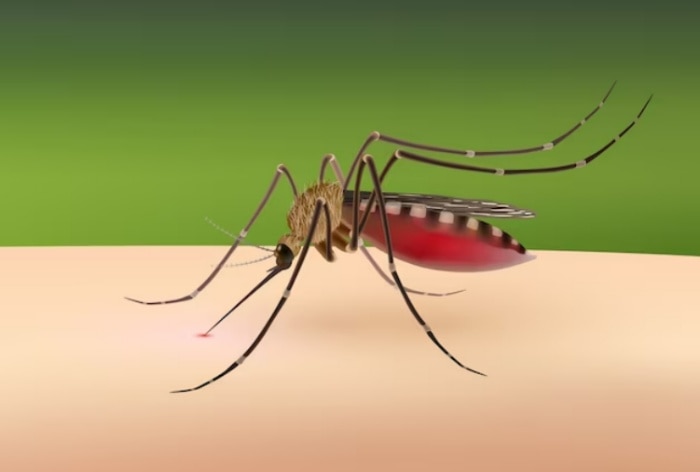Dengue cases are increasing nationwide as a result of the recent heavy rains. Patients with dengue believe that consuming goat milk can help boost platelet counts and fight the fever.
Dengue Cases Rise in India: The virus from the Flaviviridae family, which causes dengue, is spread by mosquitoes. The illness’ signs and symptoms might include a prolonged fever, rashes, muscle and joint discomfort, eye trouble, yellowing of the hands, etc. Aedes mosquitoes carrying the dengue virus attack people and spread dengue disease. Some of the most common symptoms of dengue fever include sudden high fever, severe headache, fatigue, joint pain, vomiting, nausea, pain behind the eyes,
The spike in dengue cases has suddenly made goat’s milk, which was previously infrequently in demand, a highly sought-after commodity. Families of dengue patients are looking for and contacting people who own goats in order to obtain the milk. It is believed to hasten the body’s platelet production, which falls sharply in dengue patients after infection.
Can Goat Milk Help to Increase Platelet Count?
According to the Indian Medical Association (IMA), no scientific investigation has demonstrated that goat milk may treat endothelium (an organ that helps to move blood smoothly through your body) dysfunction. If it does, it might only do so because it is a liquid and not goat milk. Salmonella, E. coli, Listeria, and other dangerous bacteria that can cause foodborne diseases and potentially make someone extremely unwell can be found in raw goat milk.
Brucellosis, a disease caught when a person is in contact with infected animals or animal products, can also be contracted by consuming raw goat milk. It manifests as a fever, night sweats, ill feeling, anorexia, joint discomfort, weariness, loss of weight, and sadness. These signs and symptoms may appear abruptly or gradually over the course of many days to weeks. The musculoskeletal and genitourinary systems are the most often affected ones.
Dengue Fever Treatment
Dengue fever is typically treatable at home. The patient is frequently treated based on their symptoms because there is no particular treatment for them. The painkiller paracetamol is often used. Non-steroidal anti-inflammatory medications, such as ibuprofen and aspirin, should be avoided since they might raise the risk of bleeding, according to the WHO. After your fever has subsided, if you start to feel worse within the first 24 hours, you should visit a hospital right away to be evaluated for problems.
Published Date: September 24, 2023 9:25 AM IST
Updated Date: September 24, 2023 11:00 AM IST
–>
–>
